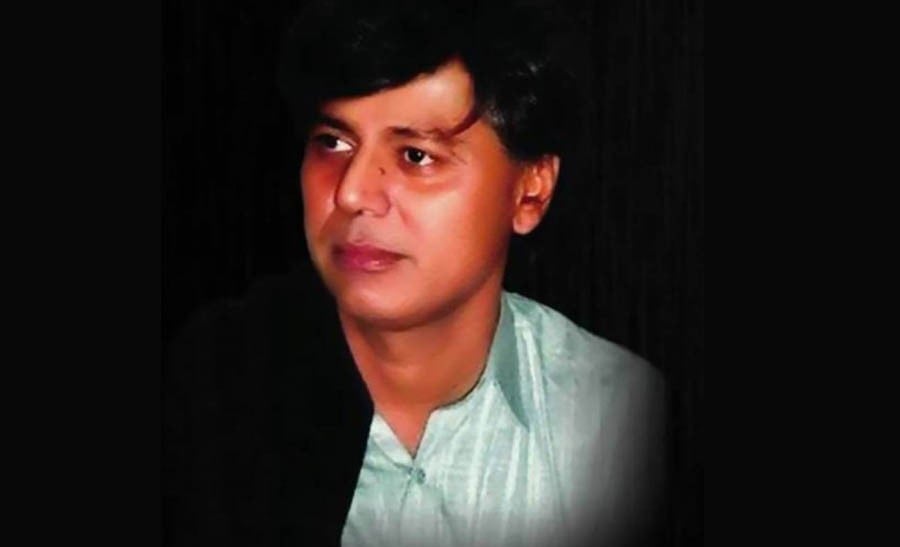
The themes of Hassan Dars’ poems were new, the language fresh and treatment of the subjects unique

It was a dark night in June 2011. That moon was not shining and instead sought to take refuge in an eclipse. The young poet was with his friends, reciting his poetry with a goblet in hand; discussing grand plans for the distant future; laughing and joking about trivial things.
After midnight he took leave and with staggering steps reached his car and began driving towards his home. A few hundred metres down, he lost control of the car and hit the huge pillar of an overhead bridge. For many hours nobody saw the wrecked car and its injured driver. At dawn, the police came but then an issue of jurisdiction was raised. By the time the police department decided which station had jurisdiction of the bridge, the young poet had passed.
Hassan Dars was the celebrated poet who died that night, a victim of his own carelessness mixed with apathy of people and callousness of the police. Dars was an important poet of post-Shaikh Ayaz generation. He was among very few poets who came out of the over pervasive influence of Shaikh Ayaz -- a giant of Sindhi poetry -- and developed his own distinct style and inimitable language. The themes of his poems were new, the language fresh and treatment of the subjects unique. His poems immediately found space in the hearts and lips of the new generation of readers who were weary of hackneyed metaphor, repeated themes and stale language.
Dars was a poet in the true sense of the word. Famous novelist Mohammed Hanif, while introducing Dars at the 2011 Karachi Literary Festival, remarked that 20 years ago when Dars was asked about his identity, he described himself as a ‘poet’ and 20 years later, Dars’ answer remains the same. The truth is, Dars never wanted to be anything else. Poetry was in his blood. To him poetry came itself, as Pablo Neruda said:
And it was at that age … poetry arrived
In search of me. I don’t know, I don’t know where
It came from, from winter or a river.
I don’t know how or when,
No, they were not voices, they were not
Words, nor silence…
Another similarity between Dars and Neruda was that beautiful women, celebration of love and a deep attachment to land were the main core of their poetry. Dars had unmatched aesthetic sense.
Dars was an extensive traveler. He traveled the width and breadth of Sindh and other parts of Pakistan and then portrayed images from all these places in his poetry. There was, however, one place that he had a special affinity with: Laar, the lower part of Sindh. His poetry had many glimpses of Laar and though he depicted the sorrows of the land, his poetry never degenerated into mere banal sentimentality and sloganeering.
Most importantly, Dars was a man with a beautiful soul. He had a very vast circle of friendship and was at ease with everybody. From the Dalit Kolhis of Parkar region of Thar to the feudal lords of Dadu; from intellectuals of Hyderabad to artists of Karachi; from Sindhi poets to English novelists, Dars made inroads in the hearts of everybody he met.
Dars’ genius was not limited to one field; he was a multifaceted person. His talents extended to print journalism where he edited newspaper, Sawal, and contributed in various magazines. He also contributed columns in newspapers and worked in electronic media. He was associated with Sindh TV where he worked in the initial days. Besides this, he wrote acted in a few plays as well.
Hassan had the stereotypical careless nature of poets. Though he wrote hundreds of poems, he never thought of collecting them and publishing an anthology. His poems were scattered here and there. However, they appeared in newspapers and magazines and were memorised by fans and friends, and that’s how they travelled from heart to heart. His poetry was sung by various artistes and was popular in the masses. Here are few of his poems (translated by the author):
You Think
You think that
All my dreams are impotent,
And every dusk of parting,
Is like silenced dwelling of eunuchs.
You think that
That all the flutes of my attachment
Have lost their melodies,
And the black serpent of pain,
Is dead in the sand dunes,
And all my saffron clad feelings for you,
Are lost forever.
You think that,
My old camaraderie with sea is no more now,
No nostalgia for me,
Kiamari’s coast doesn’t touch me.
You think that…
………..
In The Mirror
I saw myself in the mirror,
I had a doubt,
I saw myself more carefully again,
I became certain,
It was the same person,
Who late one night,
Met me in the darkness,
Asked for a match and cigarette,
And suddenly took a dagger,
Held it to my chest.
With an ordinary obscene word,
He robbed me of all my belongings.
Insulted me,
Stabbed me,
Slashed my chest,
Took my heart out,
And put it in his own pocket.
Leaving me there,
He went away.
Now, he is facing me in mirror again,
And in the pocket of his shirt,
My heart is writhing,
Without having any chest.
(Hassan Dars passed away on June 16, 2011.)